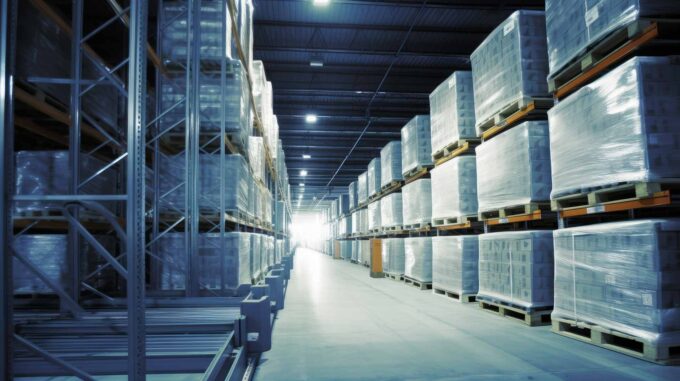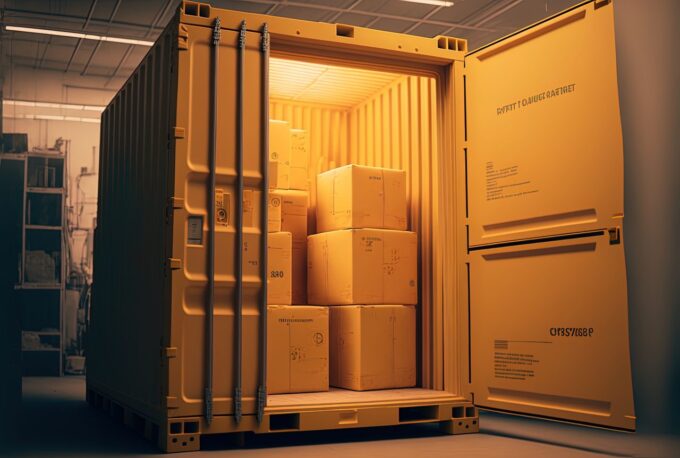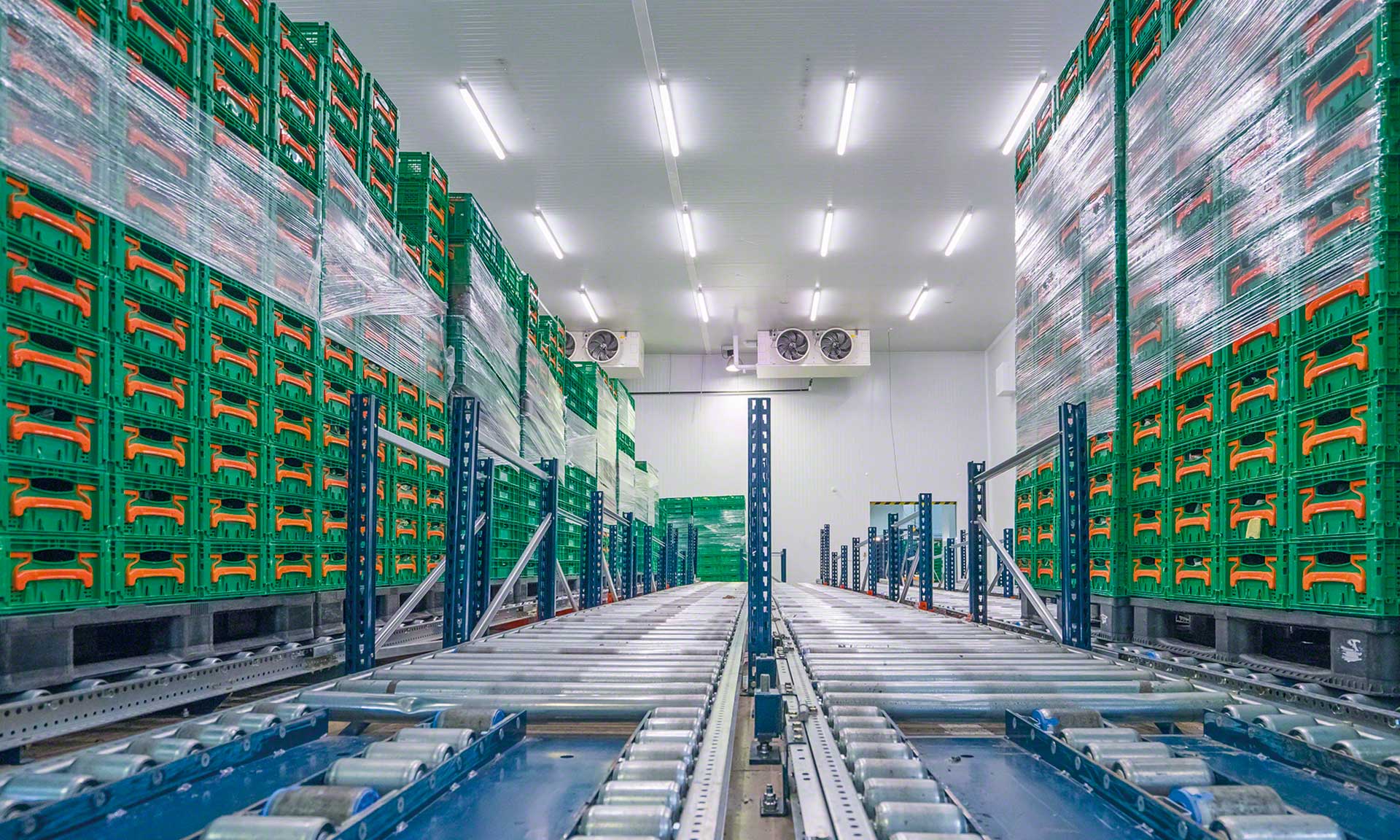North Carolina, with its diverse climate, ranging from humid summers to abrupt winter cold spells, poses unique challenges for businesses involved in storage and logistics. Whether you are in the food industry, pharmaceuticals, or any sector requiring warehousing, climate-controlled storage facilities can add immense value to your business.
Without the use of climate-controlled storage facilities, there is a risk of your products getting damaged due to weather conditions, leading to potential losses and slowdowns. But the good news is you can prevent many weather-related mishaps from occurring by using a climate-controlled warehouse. Learn more about why climate-controlled warehousing is a necessity for businesses in NC.
Protecting Sensitive Goods

Climate-controlled warehouses safeguard sensitive goods against the detrimental effects of extreme temperatures. Whether it’s high-value electronics or delicate medical equipment, these facilities protect the investments businesses make in such items. The controlled environment minimizes the risk of deterioration, ensuring that products maintain their quality, functionality, and overall market value over time.
Temperature and Humidity Control
The ability to regulate both temperature and humidity is crucial for businesses in NC. Without this control, products can undergo physical and chemical changes, affecting their composition and structure. For instance, fluctuations in humidity can lead to condensation, potentially damaging packaging and labels.
Climate-controlled warehouses provide a stable environment, mitigating these risks and allowing businesses to maintain product consistency and integrity.
Enhanced Shelf Life
Climate-controlled warehousing significantly contributes to the bottom line of businesses dealing with perishable goods. By extending the shelf life of products, companies can optimize inventory management, reduce waste, and minimize the need for frequent restocking.
This positively impacts operational efficiency and contributes to sustainable business practices by reducing the environmental footprint associated with excess production and disposal.
Preventing Mold and Mildew
Beyond the physical damage caused by mold and mildew, these contaminants can compromise the safety of stored goods, especially in industries like textiles and paper manufacturing. Climate-controlled warehouses protect against the proliferation of these harmful elements, preserving the quality and usability of materials. This protects the financial investment in inventory while upholding the company’s reputation for delivering consistently high-quality products.
Optimal Storage Conditions for Pharmaceuticals
Pharmaceuticals are often sensitive to temperature variations, and the efficacy of medications is directly tied to their storage conditions. According to a Front Public Health study, “poor pharmaceutical storage has a direct impact on the quality of the products.”
Climate-controlled warehousing ensures compliance with regulatory standards and provides pharmaceutical companies with the confidence that their products will deliver the intended therapeutic effects. This level of assurance is invaluable in an industry where precision and reliability are non-negotiable.
Energy-Efficient Solutions

The implementation of energy-efficient technologies in climate-controlled warehouses reflects a commitment to sustainability. With innovations such as smart climate control systems and eco-friendly building materials, businesses can meet their storage needs and reduce their carbon footprint.
This aligns with the growing consumer demand for environmentally responsible practices, presenting an opportunity for companies to enhance their brand image and foster customer loyalty.
Mitigating Seasonal Challenges
NC’s distinct seasons pose challenges for businesses throughout the year. In summer, the controlled environment of climate-controlled warehouses prevents heat-related damage, ensuring that products arrive at their destination in optimal condition.
During winter, the facilities protect against the cold, preventing freezing and maintaining the structural integrity of stored goods. This adaptability to seasonal challenges allows businesses to operate seamlessly, regardless of the external climate conditions.
Adaptability with Shipping Containers

The use of shipping containers as climate-controlled storage units adds a layer of flexibility to warehousing solutions. You can protect your belongings from humid summers and winter cold snaps by investing in a 20 or 40-foot shipping container and utilizing it for your storage needs. These containers can be easily transported, allowing businesses to adapt to changing storage requirements or set up temporary facilities.
The modular nature of these containers offers scalability, making them suitable for businesses of various sizes. Additionally, the portability of these containers can be advantageous for companies engaged in mobile operations or those requiring temporary storage solutions.
Compliance with Industry Regulations
In many sectors, adherence to strict regulations governing storage conditions is not just recommended but mandatory. Climate-controlled warehousing is designed to meet these regulatory standards, providing businesses with peace of mind and protecting them from legal ramifications. This is particularly crucial for industries like healthcare and food, where regulatory compliance is closely monitored and enforced.
Preservation of Packaging Integrity
Extreme temperatures and humidity can adversely affect packaging materials, leading to warping, degradation, or compromised seals. Climate-controlled warehouses contribute to preserving packaging integrity, ensuring that products remain safe and uncontaminated and present well to consumers. This attention to detail in storage can enhance customer experience and satisfaction.
Reducing Insurance Costs

Investing in climate-controlled warehousing can also have a positive impact on insurance premiums. Insurance providers often view businesses that take proactive measures to protect their inventory, such as utilizing climate-controlled facilities, as lower risks. This can reduce insurance costs, providing a financial incentive for businesses to prioritize climate-controlled storage solutions.
Minimizing Operational Disruptions
Unexpected weather events can lead to disruptions in the supply chain, affecting production schedules and customer deliveries. Climate-controlled warehousing helps mitigate these risks by providing a stable and reliable storage environment. This minimizes the chances of unexpected spoilage, damage, or delays caused by adverse weather conditions, ensuring a more predictable and efficient operational workflow.
Customization for Unique Storage Needs
Climate-controlled warehousing solutions can be customized to meet the unique storage needs of different industries. Whether it’s specialized racking systems, temperature zones, or humidity control mechanisms, businesses can tailor their storage facilities to accommodate the specific requirements of their products. This customization enhances the efficiency of storage and retrieval processes, optimizing overall warehouse operations.
Improving Employee Comfort and Safety
A climate-controlled warehouse protects goods and ensures a more comfortable and safe working environment for employees. Extreme temperatures can negatively impact employee morale and productivity. By maintaining a consistent climate, businesses create a more comfortable workplace, contributing to higher job satisfaction and reducing the risk of health issues related to working in extreme conditions.
Future-Proofing Against Climate Changes
As climate patterns continue to evolve, businesses must prepare for potential shifts in temperature and humidity. Climate-controlled warehouses provide a level of future-proofing against these changes, ensuring that companies can adapt to evolving environmental conditions without compromising the quality and safety of their stored goods. This strategic approach to storage can contribute to long-term sustainability and resilience in the face of a changing climate.










